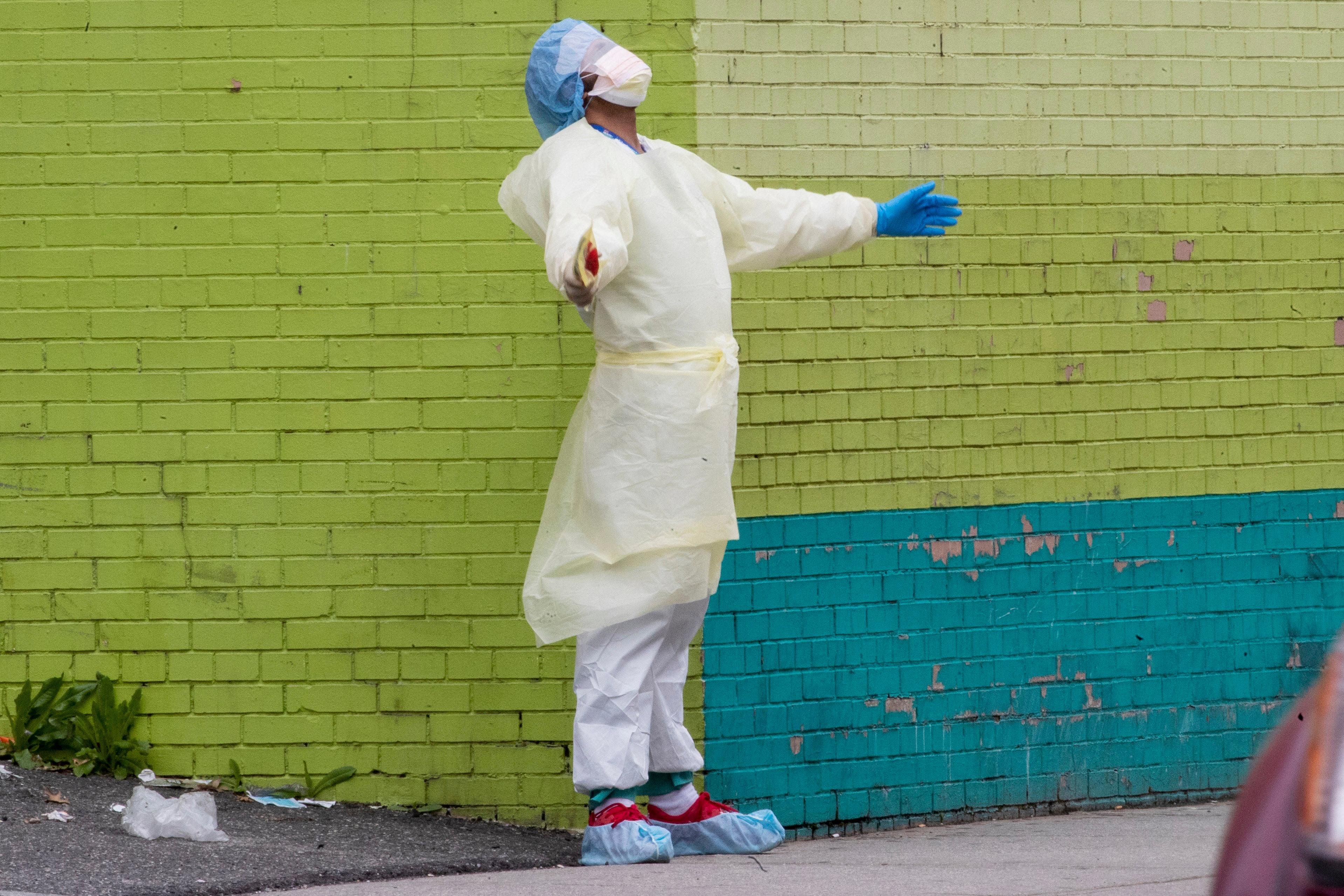
US President Donald Trump has warned Americans to brace for a "very horrendous" number of coronavirus deaths in the coming days as the total number of global fatalities from the pandemic soared past 60,000.
Confirmed COVID-19 cases in the United States on Saturday surpassed 300,000, but Europe continued to bear the brunt of the pandemic which has left roughly half the planet confined at home at a huge cost to the global economy.
Over 45,000 of global deaths have been in Europe, with Britain reporting a new daily high in fatalities, taking the overall toll to 4,300 out of nearly 42,000 cases.
Queen Elizabeth II is to make a rare, "deeply personal" speech on Sunday to urge people to rise to the challenge posed by the coronavirus, and personally thank frontline healthcare workers.
"I hope in the years to come everyone will be able to take pride in how they responded to this challenge," she will say, according to extracts released Saturday.
There are now more than 1.2 million confirmed cases across the globe, and around 65,000 people have died since the virus first emerged in China late last year, according to a John Hopkins University tally.
Trump said the United States was entering "a time that's going to be very horrendous" with "some really bad numbers."
"This will probably be the toughest week," he said at the White House. "There will be a lot of death."
At the same time, the president stressed the US cannot remain shut down forever.
"Mitigation does work but again, we're not going to destroy our country," he said. "I've said it from the beginning -- the cure cannot be worse than the problem."
The threat from mass gatherings was highlighted again this weekend, this time in Pakistan where authorities are trying to track down and quarantine tens of thousands of worshippers who attended a massive Islamic event last month.
More than 150 people who attended have tested positive for the coronavirus so far, with two deaths. Foreigners from several countries also went to the event, which was held despite government requests to cancel it over virus fears.
There was some encouraging news from Europe over the weekend.
Worst-hit Italy cheered after seeing its number of intensive care virus cases drop for the first time -- from 4,068 on Friday to 3,994 on Saturday.
Even some of the most cautious Italian health officials seized on the figures as evidence that the tide may be turning in the deadliest disaster the country has faced since World War II.
"This is a very important data point," said civil protection service chief Angelo Borrelli, adding that it "allows our hospitals to breathe."
The daily rise in new infections across Italy has also slowed. It reported 681 new deaths on Saturday, down from a peak of almost 1,000 just over a week ago.
Spain, which is under a near-total lockdown, saw a second successive daily fall in coronavirus-related deaths with 809 fatalities.
The total number of deaths in Spain now stands at 11,947, second only to Italy.
Although the number of new cases also slowed, Spanish Prime Minister Pedro Sanchez announced an extension of the country's lockdown until April 25.
At a field hospital in Madrid set up at a conference center, staff applauded whenever a patient was healthy enough to be discharged.
One of them was 59-year-old builder Eduardo Lopez who gave a "10/10" rating to the staff who cared for him "with tenderness and a great dose of humanity."
New York state, the US epicenter, saw a record 630 deaths in a single day and Governor Andrew Cuomo warned the worst was yet to come. The state has recorded a total of 3,565 deaths.
Cuomo also cautioned that already strained hospitals were not prepared.
New York City appealed for licensed medical personnel to volunteer their services.
"Anyone who's not already in this fight, we need you," Mayor Bill de Blasio said.
Trump said 1,000 military personnel, mostly doctors and nurses, would be deployed to help in the city, which he described as "the hottest of all the hot spots."
Trump also said he had asked Indian Prime Minister Narendra Modi to expedite shipments of hydroxychloroquine, an anti-malarial drug which the US leader has been touting as a coronavirus treatment although clinical trials are still ongoing.
"I may take it," Trump said. "I'll have to ask my doctors about that."
Several Western countries including the US, Germany and France have in recent days encouraged the use of masks in public despite earlier saying that only carers needed to cover their faces.
The U-turn has angered and confused some citizens, and spurred a flurry of online tutorials for DIY masks.
The advice came after some studies suggested the new coronavirus can be spread through speaking and breathing, not just coughing and sneezing.
US authorities said wearing a simple homemade mask or scarf could help stem rocketing infection rates.
The World Health Organization is reviewing its guidance but has said it worries that masks could give "a false sense of security," leading people to be more casual about hand washing and social distancing.
burs-qan/je